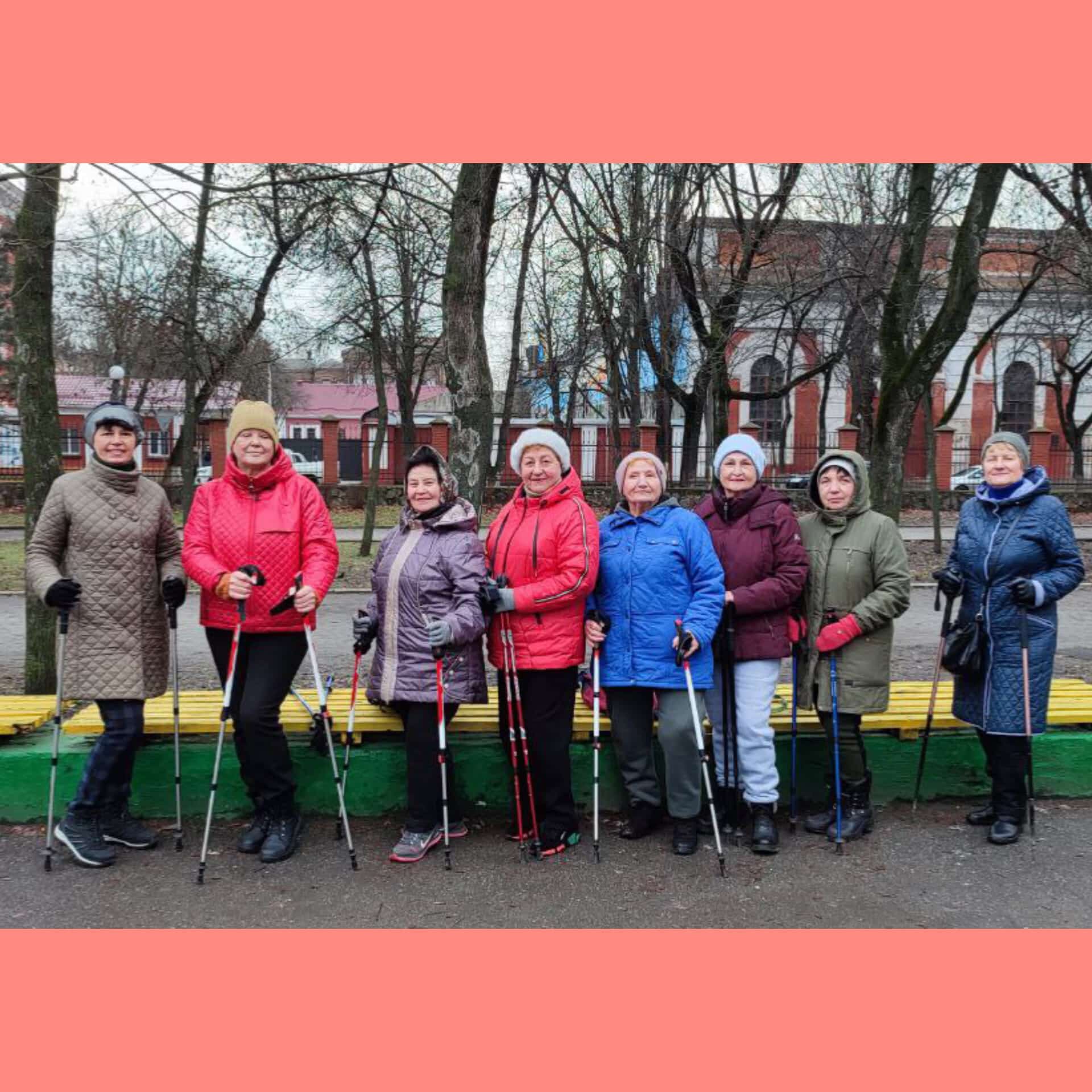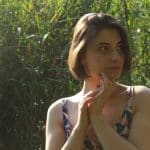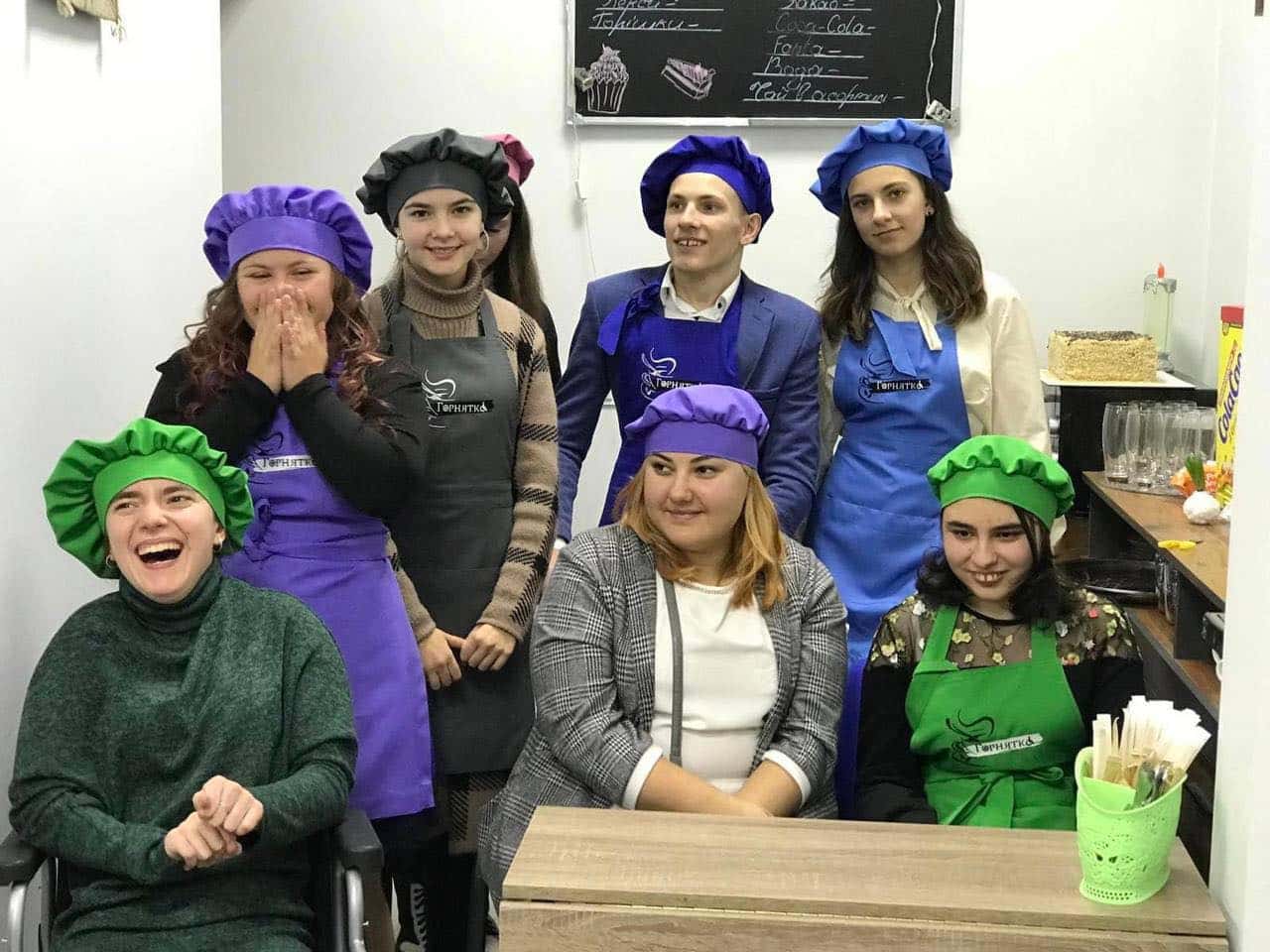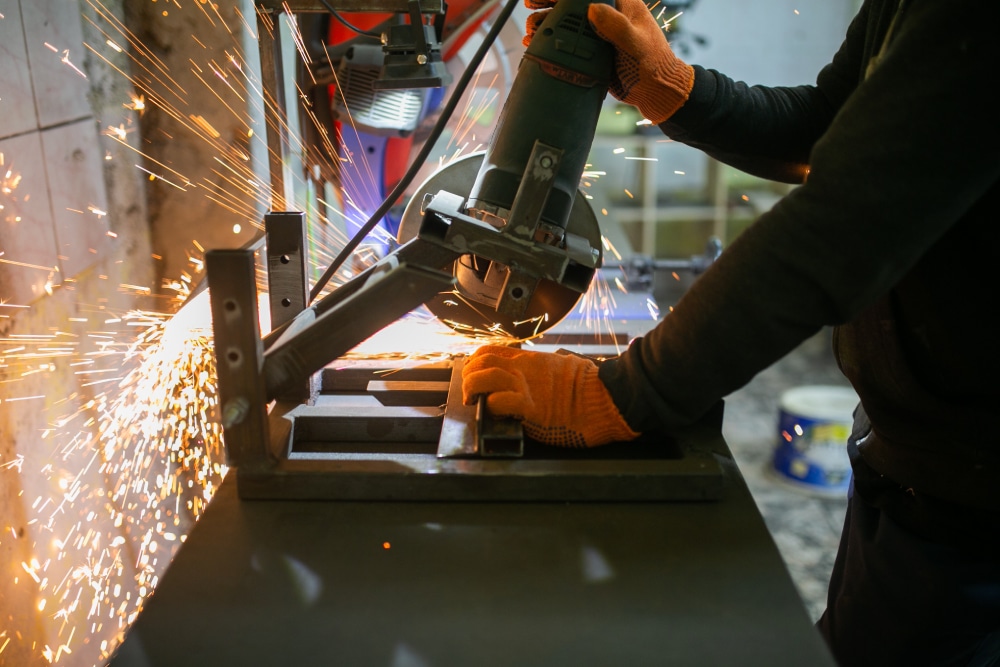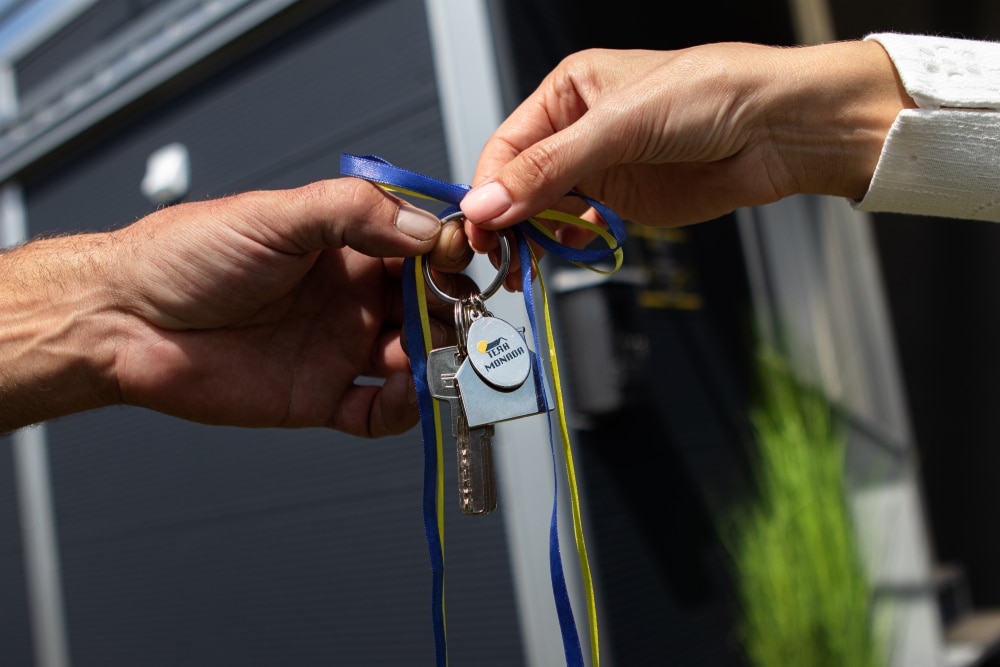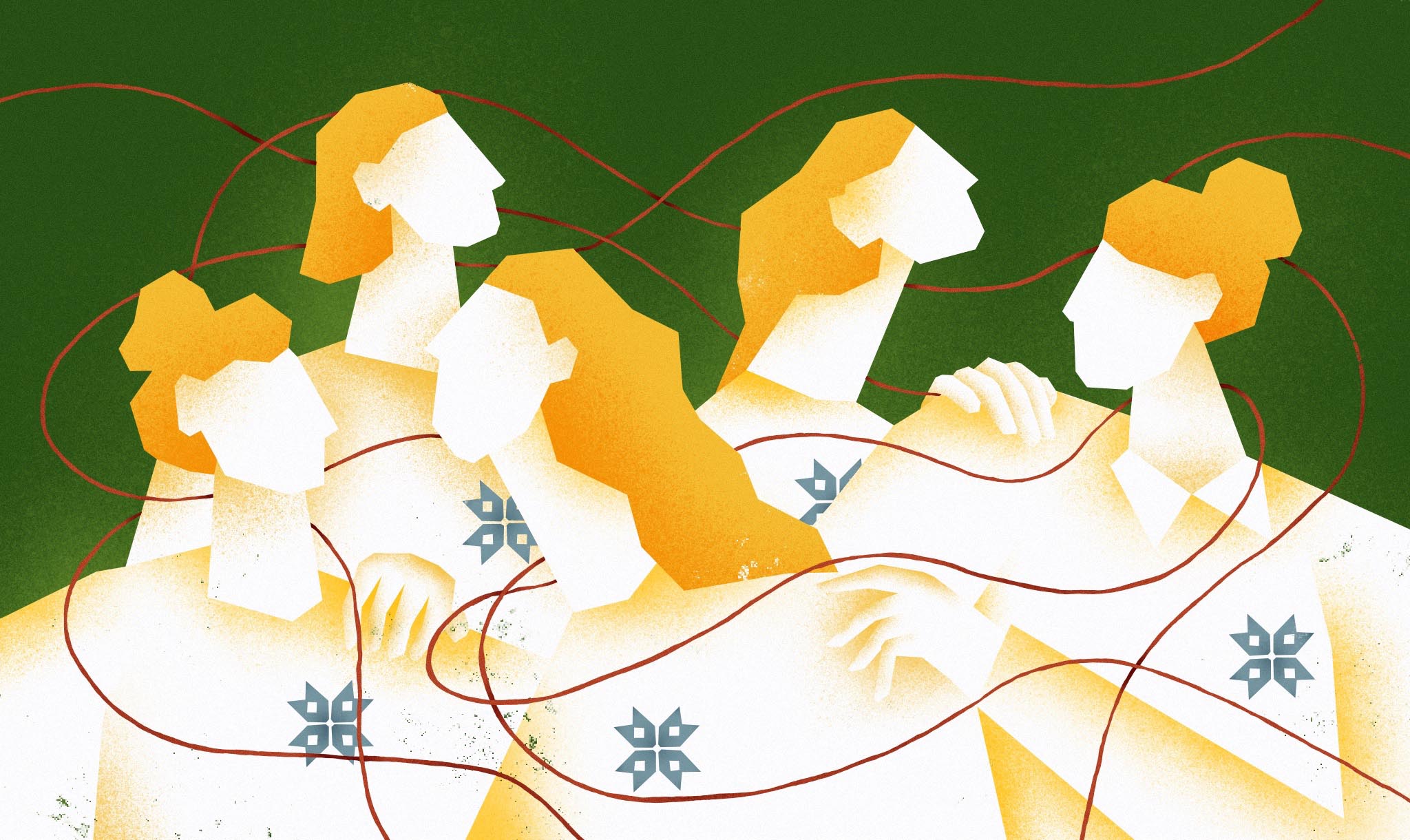Computer school, pilates, painting… All these activities are available not only to the youths, but also to older people. The public organization from Slovyansk proves that older people deserve not only humanitarian help, but also development and education.
We talked to the founder of the public organization ‚Vik shchastya‘ (the Ukrainian for ‚the age of happiness‘ – translator’s note), Natalya Bondarenko, about a new life in a new city and why older people can and want to learn.
Not social help, but rather education
Ukrainians learn about Slovyansk, a city in Donetsk province, from news from the front. However, this is not only the city subjected to damage in the full-fledged war, this is also a place where older people have begun learning, mastering skills and feeling needed by society.
Natalya Bondarenko founded the public organization ‚Vik Shchastya‘ in 2017. She says that any organization can be founded if there are people willing to influence society and ready to make a difference.
‚At that time I was over 50. I had lots of energy and experience. I saw many older people who were also ready to learn and develop themselves. I found it important to feel needed and useful‘, says Natalya.
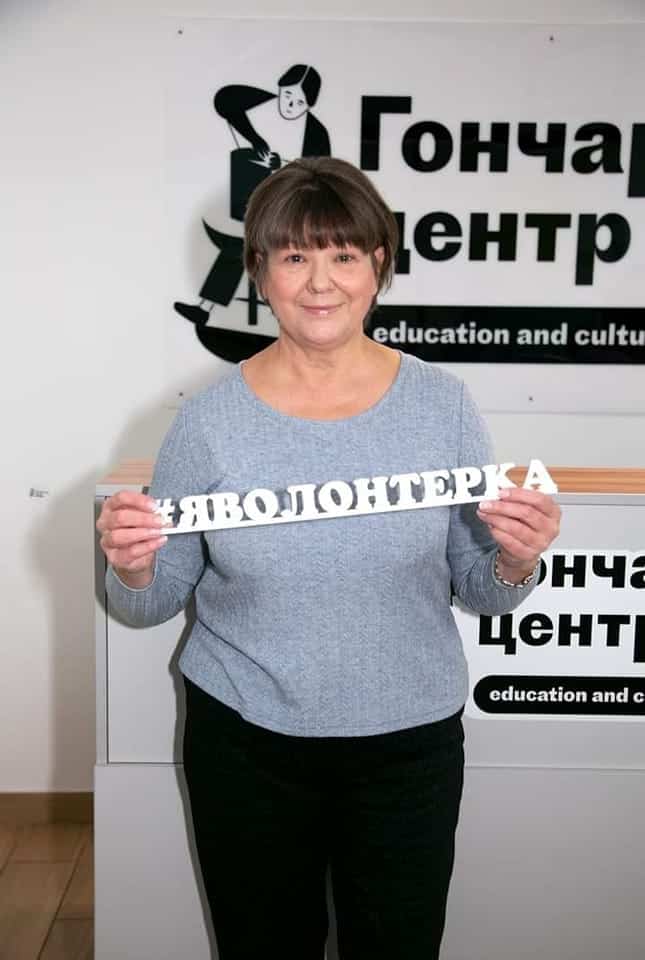
According to her, people who are 50+ make a big chunk of the community. At the time when the organization was founded, older men and women made up 30% of the whole population in Slovyansk. These people are very much capable (and have to) of influencing their community and making themselves useful.
‚We are used to the fact that when we are talking about organizations for older people, we always presume it is something about social aid, payments or pensions. However, my idea was that an older person is entitled to a socially active life, education and modern digitals skills, in particular, to be media literate’, says Natalya.
She is convinced that these skills are quite relevant since it is important to know your way around Ukrainian information space. It is for this reason that Natalya decided to run projects aimed at helping older people live an active life and influence the decision-making process of the local authorities.
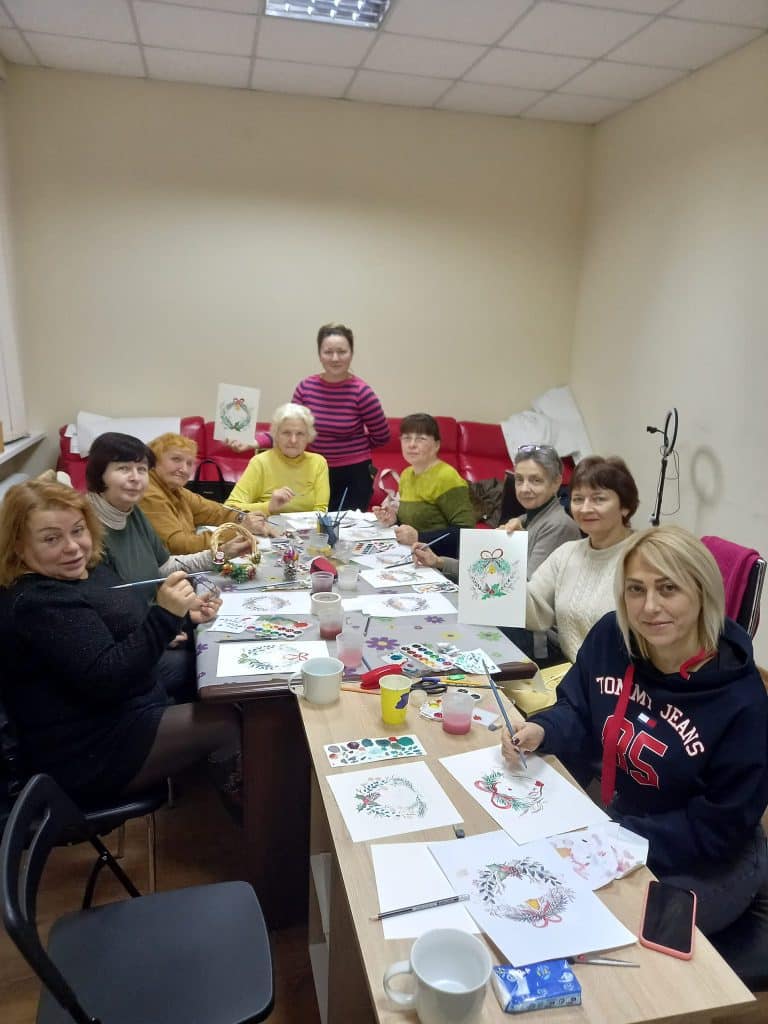
‚There is another component on which ‚Vik Shchastya‘ focuses its attention, namely, mental support and creativity. The organization also promotes a healthy lifestyle. Older people in Ukraine are accustomed to tilling the land and doing household chores. We, however, are doing Scandinavian walks and pilates. This improves their way of life, they become more active, energized and self-confident’, Natalya says.
Prior to the full-scale invasion Natalya had opened a center in Slovyansk for the development of adults. Therefore, ‚Vik Shchastya‘ already had a computer class and a gym. Lecturers from the Slovyansk Pedagogical University conducted different classes, ranging from English to psychology.
The organization collaborated with partners from Vinnytsia, Lviv and other cities, shaping public opinion about older people and fighting the stereotypes and ageism. Natalya recalls doing different photo projects and holding festivals to show that a woman is beautiful at any age. She was trying to prove to women themselves that their life was still continuing and that they were wonderful and important.
New activities in a new place
Natalya says that after the Russian full-fledged invasion of Ukraine, she and her colleagues were a bit confused. They took a decision to flee the city in March. Slovyansk is located close to the front line, in the proximity to Kramatorsk and Bakhmut. ‚Vik Shchastya‘ was relocated to Kropyvnytskyi. Viktoriya Talashkevych, the head of the local organization ‚Honcharenko center‘, offered Natalya a warm welcome. 10 computers and some equipment were also relocated. ‚Vik Shchastya‘ began working in a new place. At first the organization used the premises of the ‚Honcharenko center‘, but then with time its own humanitarian office was opened with the help of international donors.
The team of the organization is made up of 4 persons, namely, financial manager, communications manager, manager and the head, i.e. Natalya. The team members work from different regions of Ukraine, and even from Poland.
Computer and neurographics classes are held in the new place, as well as speaking club sessions. The organization also offers evening courses on media education, text therapy and other activities.
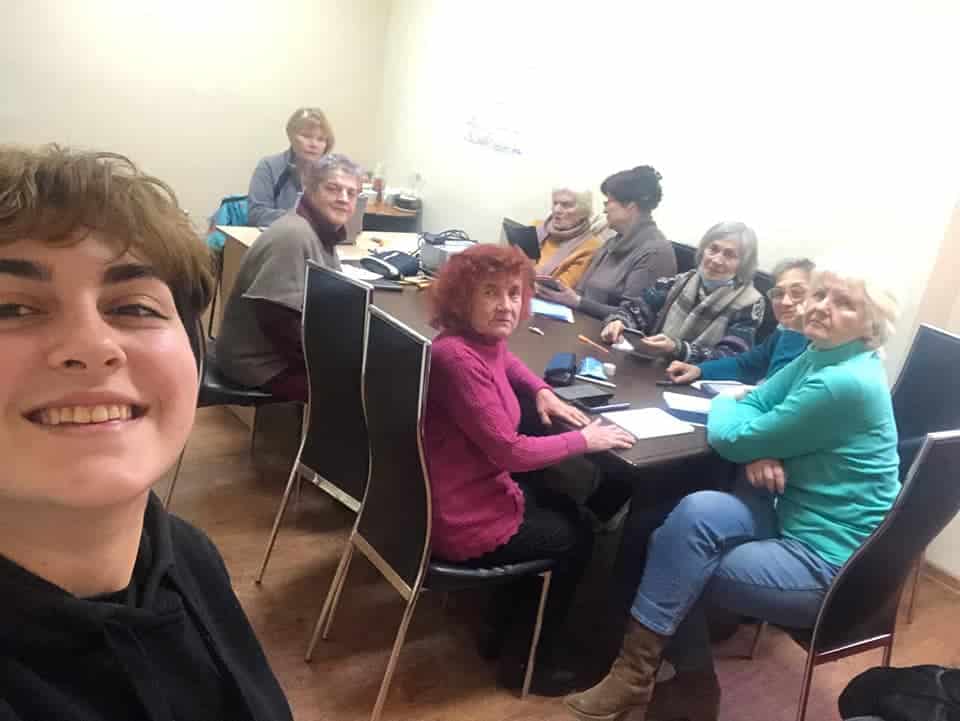
‚Most importantly, not only the locals join our activities, but also forcibly displaced persons. This is important since our group sessions of mental aid are attended by women and men from Mariupol, Lyman, Mykolayiv, Odesa and Zaporizhzhia. Older people find it more challenging to adapt to a new environment. Just imagine, they have abandoned their flats or houses, something they have dedicated 50 or 60 years of their life to. So, we were doing projects that would help them integrate into the community, meet new people and make friends’, says Natalya.
Since the beginning of the Russian invasion the organization has managed to implement 2 big projects. With the support of the Ministry of Foreign Affairs of Germany training sessions were conducted on the access of older people to legal assistance. Partners from the cities of Dnipro, Ivano-Frankivsk, Odesa and Lviv were engaged. The participants of the sessions were taught how to speak to the police, employees of the Centers for Administrative Services and not to be afraid to stand up for their rights. Older people were also taught how to use applications on their smartphones, in particular, the ‚Dia‘ application (a web portal and a brand of e-governance in Ukraine – translator’s note). The organization’s team also went to Strasbourg to pay a visit to the Council of Europe and tell Ukraine’s permanent representative there about ‚Vik Shchastya‘.
‚It was quite an eventful trip. We were at a rally held near the Europarliament in support of the decision to recognize Russia a terrorist state. One felt a huge support for Ukraine there‘, says Natalya.
A second project was also supported by Germany. Its focus was placed on offering mental aid for older people. Therapists from across Ukraine were brought in for this project. A program on overcoming trauma and healing techniques was launched. Within the framework of the project therapists were taught how to work with older people. This program was adjusted to the work with older people so that they could overcome their trauma and receive psychological resources needed for life and adaptation. The projects turned out to be quite successful. Approximately 200 older people received aid, with 15 therapists having done the program on how to work with these people.
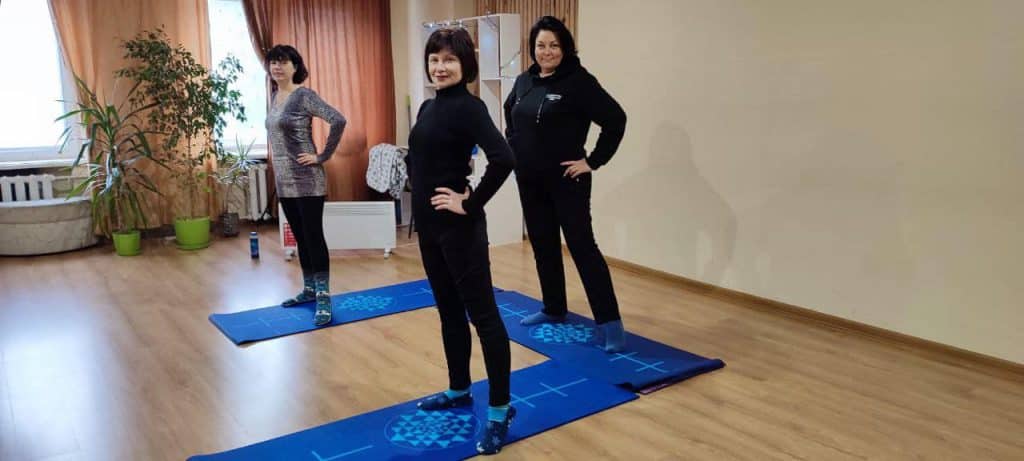
Natalya says her team does a lot of volunteer work apart from their main job. They delivered a ton of humanitarian aid for older people living in Slovyansk. They also weave masking nets or pack dry soups for the military.
Smartphones, texts and media literacy
At present the center offers evening courses on media literacy. It is conducted by Nataliya Fen’ko, a media expert and lecturer at the chair of journalism.
‚We teach people who fear to be visible on social networks or create something by themselves. This may be a podcast or a page on Facebook. Every participant finishes the course with a project they have implemented and a certificate‘, says Natalya.
Another interesting course offered by ‚Vik Shchastya’ is called ‚Smartphone is my friend‘. It helps older people learn how to use a smartphone. After its completion the participants will be able to use online banking, set up their own Google account and know their way around social networks.
Both courses last 2 months. Each group consists of about 10 participants.
Text therapy sessions are given by Nataliya Fen’ko. During these sessions participants learn how to speak about their problems through texts.
‚Sometimes a participant struggles to talk. They find it easier to put their thoughts to paper. That is how great texts are born. They then read out and discuss these texts during sessions, which helps them get things off their chest and convey their thoughts in a better way, to find better words to describe their emotions’, says Natalya.
Some sessions are held weekly, while others take place once every other week. Older people may also occasionally join sketching, painting, Scandinavian walk or pilates sessions.
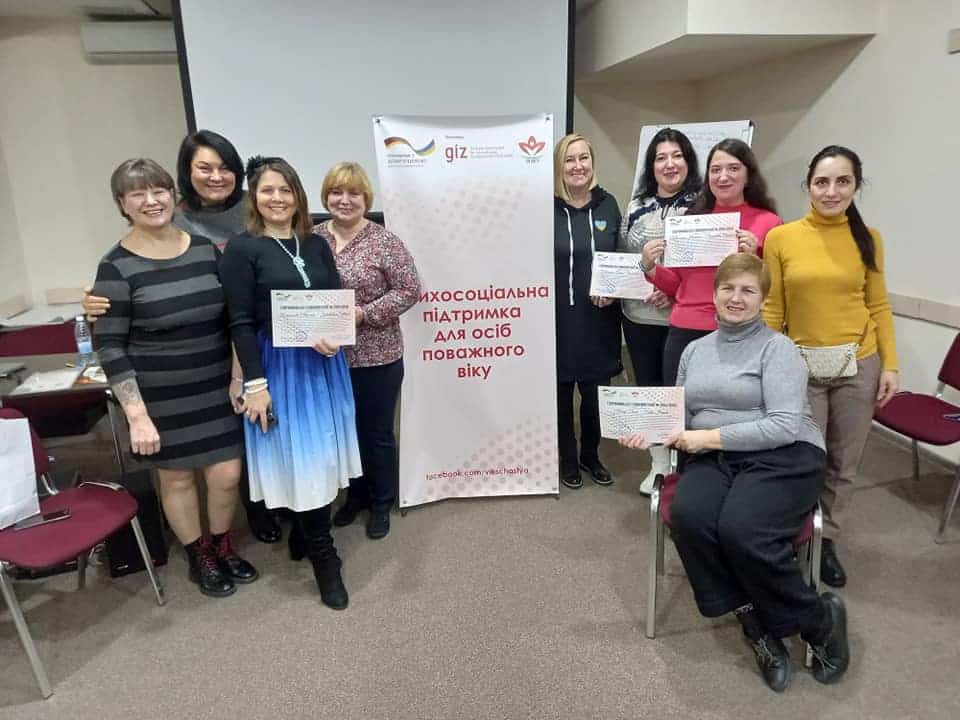
Apart from these activities, the center also offers older people to participate in mental aid groups every week.
‚Some participants attend almost all classes. That is their way of coping with loneliness. Older people are oftentimes lonely and isolated. They find it difficult to not have anyone around. At the center they communicate with one another, have tea and share contacts. For example, the participants of the first batch of the course on media literacy became good friends. They often meet up, publishing group photos on social networks and visiting cafes’, says Natalya.
Classes at the organization are held exclusively in Ukrainian. The participants also converse only in Ukrainian. Natalya says that many of the participants switch from Russian into Ukrainian, a step that is difficult but possible at their age. The head of ‚Vik Shchastya‘ takes care of nurturing Ukrainian identity.
‚We together recite poems of modern Ukrainian authors, for example, at the text therapy sessions we recited Izdryk (Yuriy Izdryk – a Ukrainian writer and poet – translator’s note) putting down to paper the feelings that his texts provoked in us. We work so that older people are able to rediscover their family roots, realize that they are Ukrainians’, says Natalya.
According to her, older people are gradually returning to the activities they were doing before the war. They speak about older people making an important part of society. They are beautiful and full of beans. A photo project is going to be presented soon about men and women not losing their appeal with age. The participants of the sessions have already learned how to pose for photos, willing to solidify their skills.
A few high school diplomas
Natalya Bondarenko has made a long journey of educating herself. Her first degree was in nursing. She spent 15 years working as a nurse. She then switched to entrepreneurship. At 40 she enrolled at the Kharkiv University in the business economy department. She then went on to found a tour agency in Slovyansk, introducing Donetsk province to visitors through trips to Svyatohirsk. However, these activities of hers did not stop her from continuing education. After setting ‚Vik Shchastya‘ up, Natalya felt she needed another diploma to better understand older people and be able to help them. At 58 she enrolled at the Slovyansk Pedagogical University to do a master degree in psychology.
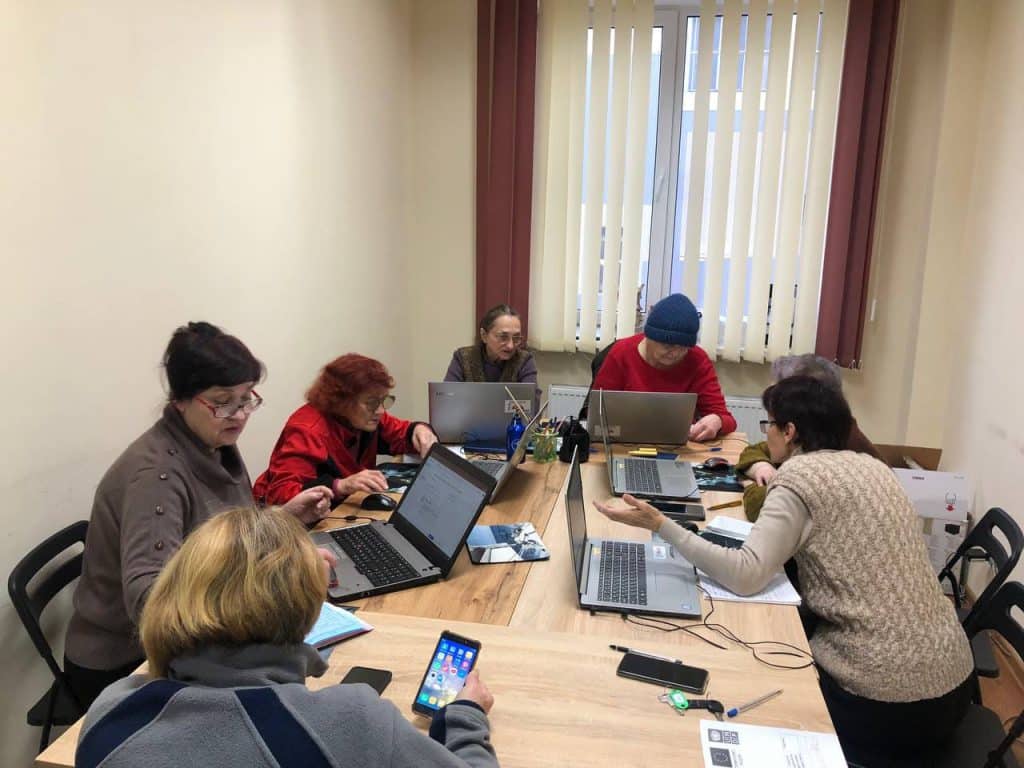
‚I am 61 now and I am studying modern psychology of older people. Why modern psychology? Because the modern person at 50 and the person of the same age 100 years back are two completely different people, with different views and attitude to things. Society has to understand that a 60-year-old person is still young. Our pilates sessions, for instance, are visited by an 82-year-old woman. The way a person treats themselves is also very important’, Natalya says.
Nataly gives pilates and Scandinavian walk lessons. For other types of sessions she brings in other experts. In the summer about 30 people were doing Scandinavian walks. However, their number has now dropped to 10-15. Often after participants come to visit the walk sessions in the park, they learn about other courses offered by the organization.
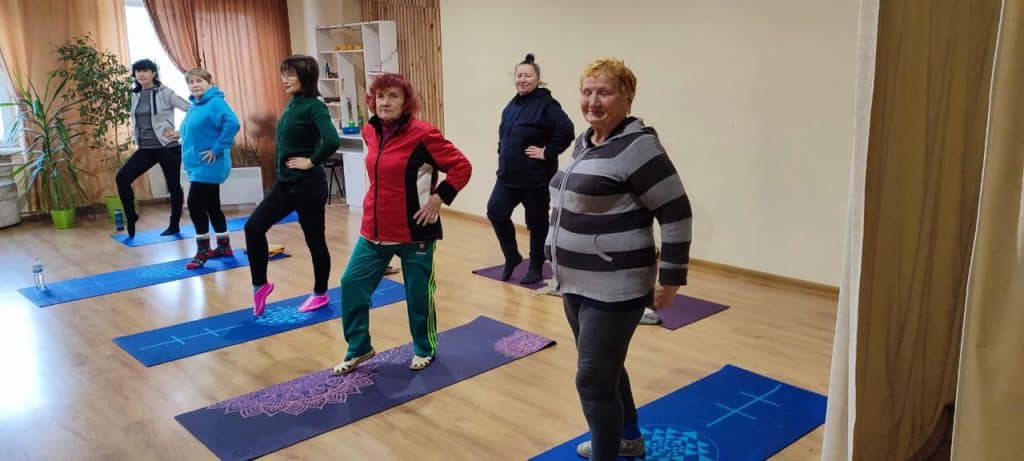
Natalya Burdiyan, a resident of Kropyvnytskyi, got interested in this type of physical activity. She learned about the club after ‚Vik Shchastya‘ relocated to her native city last spring. Natalya and her friend from school decided to join the Scandinavian walk club. She used to work as head of a department at the organization called ‚Ukrinformahroprom‘. Her work was mainly sedentary so the felt acute lack of physical activity. She is making up for it now during the sessions.
‚We meet up twice a week in the park. You’ve got fresh air there and you do the training. Natalya Bondarenko offers us to do a nice set of exercises to warm up all our joints. After that we do the walk at the pace that each of us finds comfortable. At the end we do stretching and meditation’.
Aside from Scandinavian walk, Natalya also participates in the pilates sessions. According to her, they do not require much energy, while she feels sprightly. These activities do not only improve her physical health.
‚This is also a club of interests. All girls share something with others, communicate with each other. Lots of women have come here from the East. They can hardly navigate through the city. Together we have been to a theater, taken a trip to the Nadiya khutir (a type of rural locality in some countries of Eastern Europe – translator’s note). All this unites people and fills them with interest’, says Natalya Burdiyan.
She believes that Kropyvnytskyi is blessed to have hosted ‚Vik Shchastya‘. Free time activities of older people in the city have now been taken care of.
Supporting those who stayed
‚Vik Shchastya’ will continue holding sessions in Kropyvnytskyi as the results are well tangible. Older people need such activities and they are happy to join in.
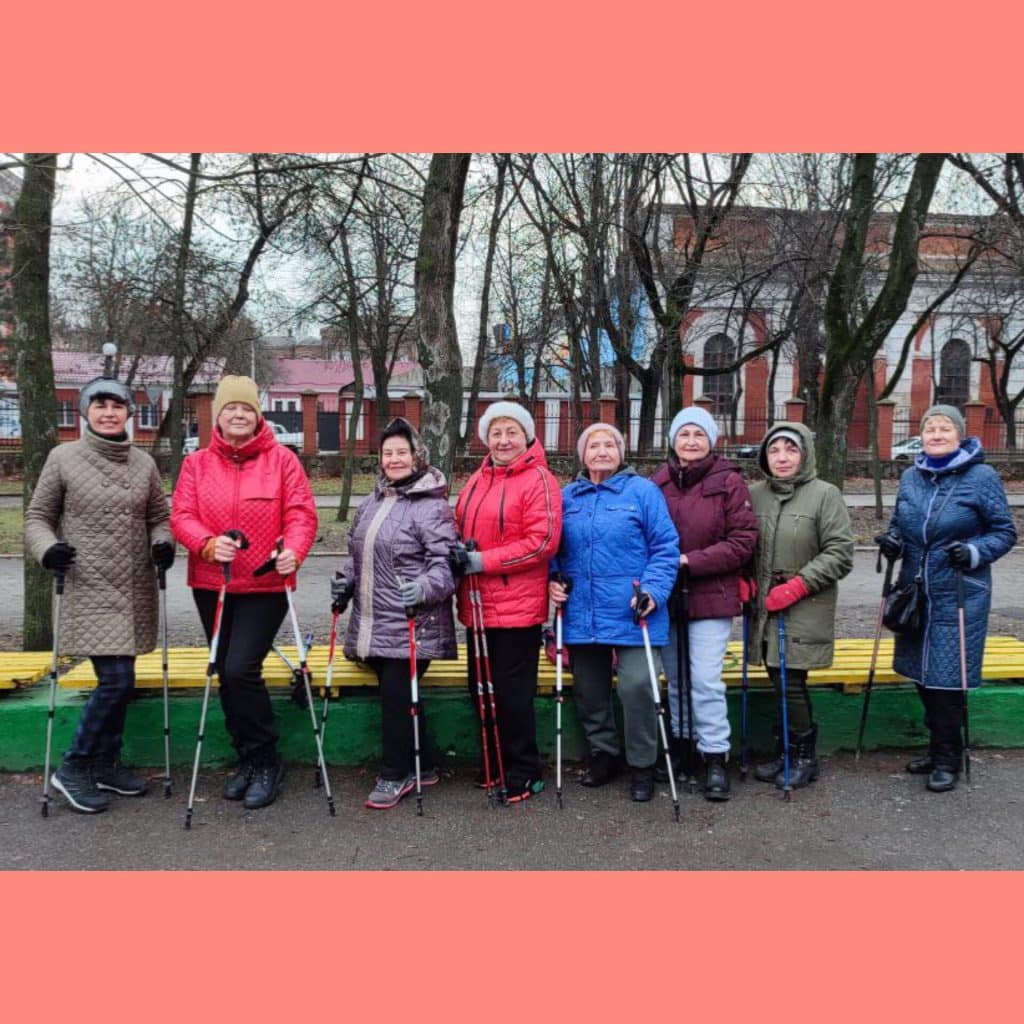
However, Natalya did not forget about the center in Slovyansk. It is currently not operating like it used to. It fulfills a different function. The city administration has taken its premises, since the building has not been damaged and is heated. The situation in the city remains difficult due to constant shelling and power outages. Nevertheless, Natalya says that ‚Vik Shchastya‘ is planning to implement a new project in Slovyansk.
‚I really want the people who are staying there to be able to receive not only humanitarian, but also mental aid. We are also planning to do some activities in our center‘.

